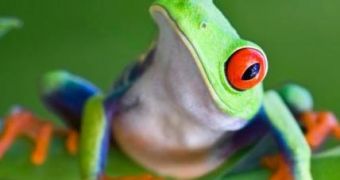Just recently, scientists decided to investigate how human-driven events impact on various amphibian species throughout the world, especially seeing how the past few years brought about a considerable decline in their population.
It was argued that climate change, ever-increasing levels of pollution, the destruction of natural ecosystems and humans' being responsible for the fact that invasive species have taken over several territories are all to blame for this biodiversity crisis.
Apparently, all said factors have contributed to more and more amphibians getting sick and dying as time goes by. As the researchers explain, pollution is responsible for these animals' immune system growing weak.
This means that they are no longer able to efficiently cope with the changes brought about in their natural habitats by climate change and global warming.
More precisely: they become vulnerable to newly emerging viruses and pathogens, get infected and die.
Apparently, these viruses and pathogens are made all the more resilient by warmer winters and overall higher temperatures during night-time.
Oregon Stat University informs us that Andrew Blaustein, one of the environmental scientists who looked into this issue, made a case of how “There's more and more evidence of the role of disease in the biodiversity crisis, in both amphibians and other types of animals.”
He further goes on to explain that, although most animals are naturally equipped to deal with various health threats, “in the face of pollution, a reduced immune response, climate change, evolving pathogens and many other stresses in such a short period of time, many species now simply can't survive.”
Although for the time being amphibians are the ones most affected by the afore-mentioned environmental changes, mainly because their being both terrestrial and aquatic animals gets them exposed to more sources of pollution, odds are that unless something is soon done, more and more animals will experience a similar decline in their population.

 14 DAY TRIAL //
14 DAY TRIAL //